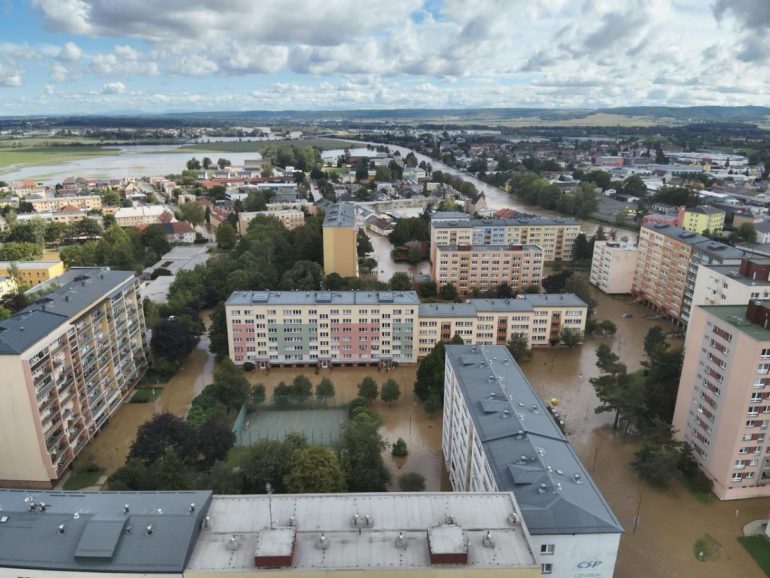The ability to recover from natural disasters is directly related to the economic situation of the inhabitants of the region, according to Josef Bernard and Pavlína Netrdová from the SYRI National Institute. Richer households tend to be less severely affected by disasters and usually recover more quickly and easily from their consequences, based on experience from other countries. In the Czech Republic, this could be a problem following the current floods, because the most affected areas were on the economic peripheries of the country.
“Although the floods threatened the vast majority of the Czech territory, their impact was regionally very uneven,” said Bernard. “At the same time, some of the poorest Czech regions are among the most affected areas.”
Jesenice, where the overflowing Morava, Bělá and Opava rivers caused widespread flooding, has long been one of the least prosperous areas of the country, and is in many ways a typical regional periphery with a weak local economy, an above-average level of poverty, and difficult transport accessibility. Its cities and villages have been experiencing population decline for a long time.
Foreign experience shows that the ability to recover from natural disasters is related to the economic situation of the inhabitants of the region. “Wealthier households tend to be less severely affected by disasters and usually recover more easily and quickly from their consequences. This is not only thanks to their financial resources, but also thanks to the ability to navigate the possibilities of help and the existence of a wide and reliable network of social contacts. Conversely, disasters can have a longer-term negative impact on poor residents. Floods and other destructive events can thus exacerbate the disadvantages of poor households and regions,” said Bernard.
He added that it is therefore important that the state focuses a lot of attention on supporting poorer regions affected by the tragic consequences of floods. “Overcoming the consequences of disasters is closely related to the quality of state administration, especially local self-government. Local and regional actors should already be thinking about how it would be possible to use the reconstruction of affected settlements and infrastructure to improve the current situation and create positive development impulses,” added Netrdová.







